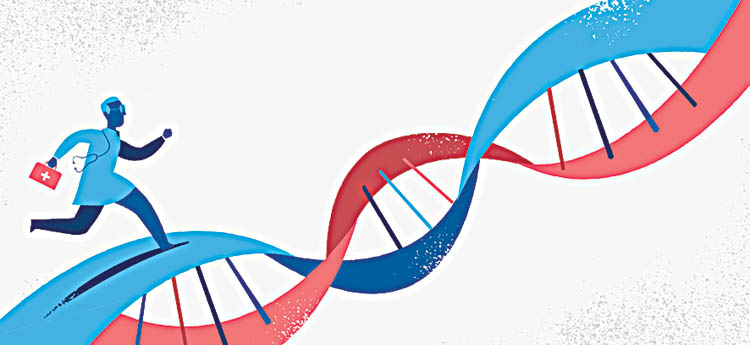New Delhi, Apr 27 (FN Bureau) There exists 7000 rare diseases globally, 80 percent of them are genetic impacting 6-8 per cent of world’s population. Inadequate early-diagnosis systems and staggeringly high treatment costs make rare genetic diseases (RGD ) a complex challenge said Dr Naresh Purohit, Principal Investigator for Indian Medical Academy for Preventive Health. Speaking to UNI here after delivering a key address at a seminar on “Challenges posed by Genetic Diseases” organised by the Mohali based Dr. B.R. Ambedkar State Institute of Medical Sciences, noted Epidemiologist Dr Purohit said that the World Health Organisation estimates the prevalence of rare diseases at one or less per 1,000 people.India is estimated to have 5-10 crore such patients. He averred that endogamy (marriage among close relatives) contributed to higher RGD prevalence in certain regions of the country.
The cases are largely reported among the marginalised and the poor and make news only when the affected families’ calls for help to meet the enormous treatment expenses go viral on social media. He pointed that the National Policy for Rare Diseases 2021 underlines a lack of awareness, research and public policy as major challenges. “Typically, it takes six to seven years for a proper diagnosis. By then, the condition of the child would have deteriorated drastically. Developing faster, affordable diagnostics will be crucial as we go forward,” he said. He revealed that spinal muscular atrophy, a disorder that weakens muscles and limits movement, Sickle Cell Anaemia, forms of primary immunodeficiency disorders, and myopathies and dystrophies that cause progressive muscular degeneration are some of the diseases classified under the RGD spectrum.
“About 95 per cent of these disorders do not have any FDA-approved treatment.”he added. “India’s RGD strategy is hindered by a lack of epidemiological data. The policy underlines the absence of therapies and the problem of “prohibitively expensive” drugs when they are available. “he observed. Dr Purohit said that the treatment of some of the RGDs cost Rs 15 crore to Rs 20 crore. Primary testing itself can often cost more than Rs 30,000. “These costs have to be brought down substantially to ensure large-scale screening. It is highly desirable to have extensive screening as we can then provide counselling to parents who are carriers. Nation can even have non-invasive procedures for prenatal diagnosis but all this requires some high-end science,” he said.

